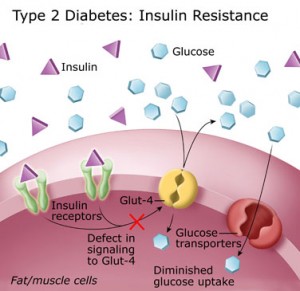 The U.S. Food and Drug Administration today approved three new related products for use with diet and exercise to improve blood sugar control in adults with type 2 diabetes:
The U.S. Food and Drug Administration today approved three new related products for use with diet and exercise to improve blood sugar control in adults with type 2 diabetes:
- Nesina (alogliptin) tablets,
- Kazano (alogliptin and metformin hydrochloride) tablets, and
- Oseni (alogliptin and pioglitazone) tablets.
Alogliptin is a new active ingredient, while metformin hydrochloride and pioglitazone are already FDA-approved for the management of type 2 diabetes. As the most common form of the disease, type 2 diabetes affects about 24 million people and accounts for more than 90 percent of diabetes cases diagnosed in the United States.
Alogliptin (codenamed SYR-322, trade name Nesina) is an orally administered anti-diabetic drug in the DPP-4 inhibitor class, developed by Takeda Pharmaceutical Company.
People with type 2 diabetes are either resistant to insulin or do not produce enough insulin, resulting in high blood sugar levels. Over time, high blood sugar levels can increase the risk for serious complications, including heart disease, blindness, and nerve and kidney damage.
"Controlling blood sugar levels is very important in the overall treatment and care of diabetes," said Mary Parks, M.D., director of the Division of Metabolism and Endocrinology Products in the FDA’s Center for Drug Evaluation and Research. “Alogliptin helps stimulate the release of insulin after a meal, which leads to better blood sugar control.”
Nesina, Kazano, and Oseni were studied as stand-alone therapies (monotherapies) and in combination with other type 2 diabetes therapies, including sulfonylureas and insulin. They should not be used to treat people with type 1 diabetes or those who have increased ketones in their blood or urine (diabetic ketoacidosis).
Nesina was demonstrated to be safe and effective in 14 clinical trials involving about 8,500 patients with type 2 diabetes.
- Nesina resulted in reductions in glycosylated hemoglobin (HbA1c), a measure of blood sugar control, of 0.4 percent to 0.6 percent compared with placebo after 26 weeks of use.
- The FDA is requiring five postmarketing studies for Nesina: a cardiovascular outcomes trial; an enhanced pharmacovigilance program to monitor for liver abnormalities, serious cases of pancreatitis, and severe hypersensitivity reactions; and three pediatric studies under the Pediatric Research Equity Act (PREA), including a dose finding study and two safety and efficacy studies, one with Nesina as a monotherapy and one with Nesina and metformin.
- The most common side effects of Nesina are stuffy or runny nose, headache, and upper respiratory tract infection.
The safety and efficacy of Kazano were demonstrated in four clinical trials involving more than 2,500 patients with type 2 diabetes.
- Kazano resulted in additional reductions in HbA1c of 1.1 percent over Nesina and 0.5 percent over metformin after 26 weeks of use.
- The FDA is requiring two postmarketing studies for Kazano: an enhanced pharmacovigilance program to monitor for liver abnormalities, serious cases of pancreatitis, and severe hypersensitivity reactions; and a pediatric safety and efficacy study under PREA.
- Kazano carries a Boxed Warning for lactic acidosis, a build-up of lactic acid in the bloodstream, associated with metformin use.
- The most common side effects of Kazano are upper respiratory tract infection, stuffy or runny nose and sore throat, diarrhea, headache, high blood pressure, back pain, and urinary tract infection.
Oseni was demonstrated to be safe and effective in four clinical trials involving more than 1,500 patients with type 2 diabetes.
- Oseni resulted in additional reductions in HbA1c of 0.4 percent to 0.6 percent over pioglitazone monotherapy and 0.4 percent to 0.9 percent over alogliptin monotherapy.
- The FDA is requiring an enhanced pharmacovigilance program for Oseni to monitor for liver abnormalities, serious cases of pancreatitis, and severe hypersensitivity reactions.
- Oseni carries a Boxed Warning for heart failure associated with pioglitazone use.
- The most common side effects of Oseni are stuffy or runny nose and sore throat, back pain, and upper respiratory infection.
Nesina, Kazano, and Oseni are distributed by Takeda Pharmaceuticals America, Inc., Deerfield, Ill.
Source :FDA NEWS RELEASE
For Immediate Release: Jan. 25, 2013

I require latest updates on DMtype2 , particularly on medicine.
I require the latest updates regarding the medicines particularly pioglitazone combination